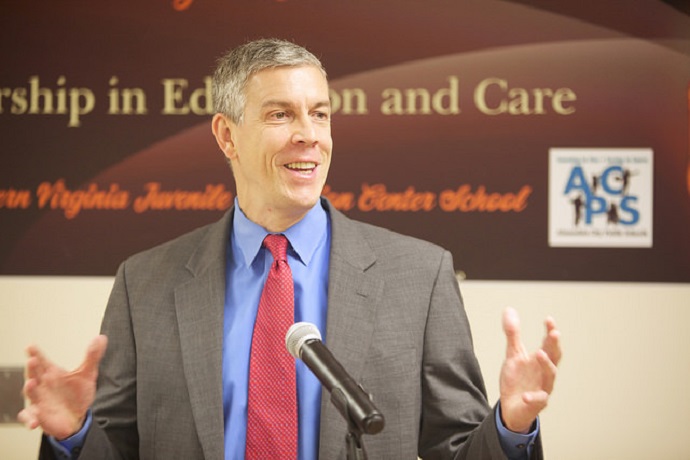Paloma Pimentel | Contributing Writer
As classroom instruction becomes an increasingly charged topic in Florida’s public schools and universities, the state’s public education system faces a critical teacher shortage that has led to drastic policies implemented by Tallahassee to fill the gaps.
Some of those policies have taken a particular toll on education majors at FIU – both at the undergraduate and graduate levels.
An August survey conducted statewide found 10,771 advertised K-12 educator vacancies, including both teachers and support staff.
While states respond to the issue differently, Florida has gained notoriety for what some describe as a questionable approach to filling those vacancies.
Recent legal implementations from the state legislature, such as the new K-12 policy commonly known as the Don’t Say Gay bill (which includes book banning and the prohibition of certain subjects from being taught), along with the enactment of the Military Veterans for Teacher certification program, are part of the discussion surrounding factors leading to a decline in the teaching force.
On July 1, Florida began allowing qualified military veterans and their spouses to obtain five or three-year temporary teaching certificates to serve as substitute teachers in public schools.
While expanded requirements include, but are not limited to, having served a minimum of 48 months of active military duty ending with either an honorable or medical discharge and a minimum of 60 college credits with at least a 2.5-grade point average, having a bachelor’s degree is not one of them.
James Burns, associate professor of curriculum studies in FIU’s School of Education and Human Development, shared how the decrease in enrollment over the last few years in teacher education programs at FIU and high teacher turnover rates are some of the effects of these newly implemented policies that restrict the freedom of teachers and politicize their classrooms.
“If you can find a teacher who has 15 to 20 years in a classroom, that is now the exception when you also have new teachers who go in and are turning over in 3 to 5 years,” Burns said.
Kourtney Wilson, pursuing a Master’s in Education at FIU, had a rather dismal view of the program.
“It’s a slap in the face for people like me and teachers who went to school for 4 or 6 years to obtain all the certifications and skills that they need to teach children properly,” she said in an interview with PantherNOW. “How is it okay to allow a person that served in the military to come into the classroom, not knowing if they are in the right mind to handle underage children in a school setting?”
Abraham Escobar, a former commander in the United States Army who oversaw and trained four units in South Korea, dismissed the program and shared his thoughts with PantherNOW.
“Not everyone who honorably served the military for four years had a leadership role; some could’ve been cooks. How does that qualify to be in a classroom with children?” Escobar said.
“Someone could serve honorably in the military for four years and not be put in a leadership position, where this person just did what they were told and showed up in the right places at the right time and followed orders,” Escobar added. “That’s honorable, but that doesn’t translate into the classroom.”
Escobar explained that the positions assigned to soldiers are based on what they score in the Armed Forces Vocational Aptitude Battery test, or the ASVAB, and people who score low are given jobs that are more labor intensive as opposed to intellectual.
Glorisabel Salabarria, another FIU student pursuing her master’s in early childhood education, asked why veterans were being provided opportunities that would be better suited for pre-service or other young and upcoming teachers.
Salabarria earned her bachelor’s of early childhood education at Miami Dade College, which is a program that focuses on two areas for certification and three endorsements, general knowledge, professional and certification exams, and required two internships to be able to teach in a classroom.
“Pre-service teachers enrolled in a teacher education program and working toward a teacher certification are more qualified to be offered the opportunity because these are people that are already knowledgeable in the field and have the passion, why is this opportunity not [available] to them?”
Just recently, Miami Dade College and Miami-Dade public schools have partnered to create the Teacher Candidate Residency Program which allows students at the MDC School of Education to be hired as teachers, while completing their bachelor’s degree.
Salabarria explains, “this kind of working together is what education students at FIU hope to experience, along with other changes in the system such as higher salary, union support, and freedom of expression in teaching.”






Be the first to comment on "Education students concerned over Florida legislation addressing teacher shortage"